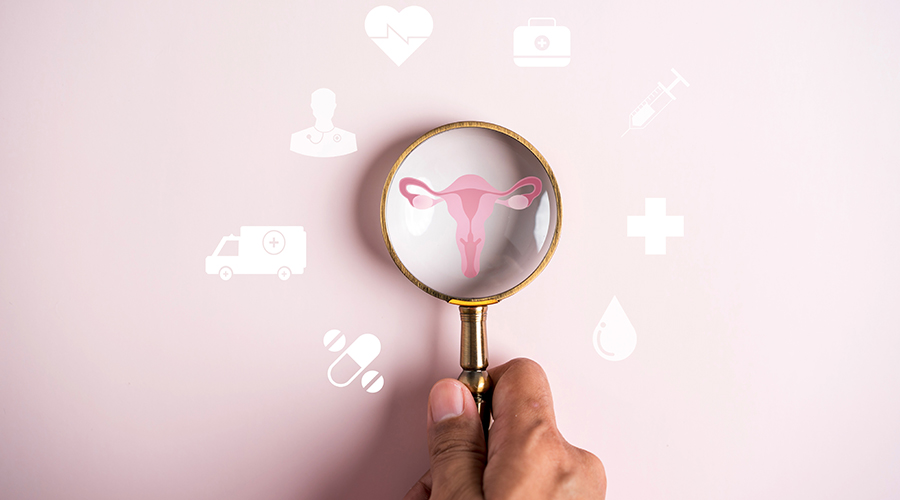Managing PCOS and its Symptoms
9 September 2024
Hello Ziddis! This blog is for all the ladies who feel overlooked when they look for a fitness regime but find nothing that feels accommodating to their health condition. It is said that 2 out of 3 women have hormonal disorders. Most are as long-lasting as PCOS. Polycystic Ovary Syndrome can hamper your life in ways that other people wouldn’t understand. So let us understand a bit more about it.
What is PCOS?
Polycystic Ovary Syndrome is a hormonal disorder affecting women of reproductive age. To understand it anatomically, your ovaries start to develop cysts due to hormonal imbalance. Multiple small cysts can be seen on one or both ovaries and can lead to a variety of symptoms and complications. However, the name could be misleading and not all women struggling with this hormonal imbalance would develop cysts which makes diagnosing it tricky in some cases.
What are PCOS Symptoms?
Symptoms of Polycystic Ovary Syndrome vary greatly depending on what are the causes of the hormonal dysfunction, but under a broader umbrella, if you notice these things it is your cue to get checked:
- Irregular or missed periods
- Excess hair growth on the face or body
- Acne
- Oily skin
- Irritable mood
- Weight gain
- Pooch around the abdomen
- Thinning hair or hair loss
- Difficulty conceiving
- Too heavy or too light bleeding
- Gut issues
These symptoms may seem normal at first and hard to notice but having a closer look you would find a pattern. It is important to keep inspecting what happens with your body to stay healthier and aware.
What Causes PCOS?
The exact cause of Polycystic Ovary Syndrome is not well understood. There is such a wide range of symptoms that there could be multiple factors to it from genetics to lifestyle. But here are a few key culprits to start with:
- Insulin resistance: Having insulin resistance can cause your hormone levels and lead to weight gain and Type 2 diabetes. These fall in cycle with Polycystic Ovary Syndrome. This vicious cycle’s start can not be figured out but both of these factors lead to each other.
- Hormonal imbalances: More male hormones in the body like androgens and testosterone can lead to disrupted ovulation and cause excess hair growth, acne and oily skin.
- Emergency Pills: Hormones your body absorbs when you use emergency pills can lead to disrupting your body’s hormone balance and depending on your body’s resistance it could or couldn’t have further implications.
- Genetics: Research also shows links to genetics that can run in families to cause Polycystic Ovary Syndrome.
What causes PCOS can be specific from person to person and needs an in-depth diagnosis to understand it.

Is PCOS a Big Problem?
Yes. Polycystic Ovary Syndrome can seem like a small problem in hindsight but is actually something that can lead to lifelong ailments like Type 2 Diabetes and permanent dietary changes like lactose intolerance. To understand the depth of this problem you will need to get blood tests for hormone levels and ultrasound scans to detect cysts on the ovaries.
How to Manage PCOS
Polycystic Ovary Syndrome requires you to look at it from a holistic perspective. Just like its symptoms elevate the risk of diabetes and mental health concerns you will need to take care of your body and mind both to fight and reverse it.
Medical treatments may include birth control pills to regulate periods but they are a very short-sighted treatment and would require something more in-depth like a lifestyle and dietary change.
Lifestyle Changes
- Adopting a healthy lifestyle can greatly improve PCOS symptoms:
- Exercise regularly to maintain weight and insulin resistance.
- Control your stress with yoga, walking, breathing exercises, mindful practices or therapy. management
- Maintain a regular 7-9 hours sleep cycle at a designated time.
Dietary Changes
- Diet plays an important role in managing Polycystic Ovary Syndrome. Some helpful changes include:
- Opt for complex carbs like whole grains, legumes and vegetables to prevent insulin spikes.
- Include more Omega 3-rich foods and anti-inflammatory foods like berries and leafy greens.
- Up your protein intake with lean proteins like chicken, fish or plant based proteins options like tofu.
- Try to go non-dairy
Takeaway
PCOS can seem very overwhelming at first but with the right understanding and approach you could beat it. Try to keep a close look on what your body says and follow the cues. Know that to let go of an ailment like Polycystic Ovary Syndrome you would need to let go of unhealthy food, lifestyle and stressors. Always trust and consult your gynac and healthcare professional to understand the cause specific to your condition and have a more personalized approach to it. Remember, PCOS is a journey, not a race, so take things one step at a time and be patient with yourself.









 100% Safe & Secure payments:
100% Safe & Secure payments:




